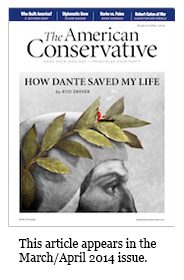Burke vs. Paine—Then and Now

Near the end of this extremely absorbing book, Yuval Levin frames a series of canonical questions:
Should our society be made to answer to the demands of stark and abstract commitments to ideals of social equality or to the patterns of our own concrete traditions and foundations? Should the citizen’s relationship to his society be defined above all by the individual right of free choice or by a web of obligations and conventions not entirely of our own choosing? Are great public problems best addressed through institutions designed to apply the explicit technical knowledge of experts or by those designed to channel the implicit social knowledge of the community? Should we see each of our society’s failings as one large problem to be addressed by building on what works tolerably well to address what does not?
And most profoundly: “What authority should the character of the given world exercise over our sense of what we would like it to be?”
As Levin points out, the answers to these questions are not mere abstractions: on the contrary, they fundamentally shape current public policy over a host of issues, from heathcare reform to anti-poverty programs. And they in turn spring from and reflect two distinct sets of ideas, indeed two distinct dispositions—conservative and progressive—which he identifies with the right and the left of American politics.
Not only that: The Great Debate argues that these ideas enter the American political bloodstream almost from the moment of the Founding, via the climactic public clash in the 1790s between Edmund Burke and Thomas Paine, the prime movers in a pamphlet war that convulsed and engaged readers on two continents. The touchstone of domestic U.S. political debate is, then, not capitalism versus socialism, nor even religious fundamentalism versus a cosmopolitan secularism, but an earlier and deeper disagreement over the nature of the modern liberal political order itself.
As the founding editor of National Affairs and a former White House and Congressional staffer, Yuval Levin is well qualified to address these issues. But more importantly, he brings them alive with great philosophical insight and historical flair. Though himself a man of the political right—indeed, recently described as a “one-man Republican brain trust”—he is a careful and even-handed commentator, indeed perhaps a little too even-handed.
The basic facts of the great “pamphlet war” are well known. In late 1790, Edmund Burke published his Reflections on the Revolution in France. Burke had been a pioneering reformer from the moment of his arrival in the House of Commons in 1765, fighting for more equal treatment of the Catholics in Ireland; against what he saw as British oppression of the thirteen American colonies; for constitutional restraints on executive power and royal patronage; and against the corporate power of the East India Company in India.
The French Revolution had been widely celebrated amongst intellectuals, radicals, and bien-pensants in Britain, and many people naturally assumed that Burke would join his protégé, the Whig leader Charles James Fox, in acclaiming it. It came as a profound shock for them to read not merely that he was bitterly opposed, but opposed in terms that combined soaring rhetoric with what was quickly recognized as a profound statement of political philosophy, including a devastating critique of revolution itself. As that critique came under fire—and the Reflections became a bestseller—Burke himself was denounced as a turncoat and traitor to the progressive cause. His reaction was to redouble his efforts, in a desperate bid to halt what he saw as the canker of Jacobinism from spreading to Britain.
To none was the shock of the Reflections greater than to Thomas Paine. He had made his name as the author of the revolutionary tract Common Sense in 1776, stiffening American popular resolve for war against the Crown. Returning to Britain, he stayed for several days in the summer of 1788 with Burke at the latter’s house near Beaconsfield. Now he saw that Burke’s book demanded a rapid and equally trenchant public response. The result was The Rights of Man, whose two parts were an even bigger popular success, if not quite as big as Paine claimed. There followed dozens of further pamphlets, as opinion divided over the issue, while the revolution in France descended—as Burke had predicted—into anarchy, terror, and war.
Levin sets the scene well. He then frames the argument between Burke and Paine through a series of six oppositions: between nature and history, justice and order, choice and obligation, reason and prescription, revolution and reform, and generations and the living. Though there are some aspects of Burke’s thought that are inevitably omitted, or only touched upon, broadly speaking this approach is highly effective. As well as bringing out key points of disagreement, it builds up a clear and vivid picture in the reader’s mind of the two men’s different ideas.
On the one hand, there is Burke, the “philosopher in action,” a man combining deep learning and reflection with a mastery of the facts at hand, always conscious of the limitations of individual human reason, who sees society as a priceless providential inheritance that each generation must maintain and enhance for posterity.
On the other, there is Paine, whose hatred of authority in any form was so great that it extended even to acknowledging previous thinkers, so that he said, “I scarcely ever quote; the reason is, I always think”; a man who celebrates the exercise of unfettered human reason and personal choice, rejects the claims of tradition and convention, and seeks to reconstitute government and society itself according to abstract reason.
What unites the two is their passion, their commitment to a core set of issues, and their belief that these issues must be argued out in the public square. Yet over and above their disagreements there is an even more basic difference between them, as Levin recognizes. Burke is a genuinely complex thinker. He operates at many levels, across a wide range of fronts. He has a very subtle understanding of how facts condition theorizing, and it takes real time and effort to engage with him and understand what he is saying.
But Paine is not like this. He expresses himself in very simple terms; indeed he rejects complexity as such. For him what matters is the unimpeded exercise of abstract individual reason, exercised now. In his words,
Time with respect to principles is an eternal NOW … what have we to do with a thousand years? Our lifetime is a short portion of time, and if we find the wrong in existence as soon as we begin to live, that is the point of time at which it begins to us; and our right to resist it is the same as if it had never existed before.
Paine’s simplicity is a crucial source of his rhetorical power: few people can read him and not find themselves nodding in agreement at his simple certainties. Yet its effect is to reject complex truths in favor of straightforward falsehoods, and to lead Paine into contradiction.
He is deaf to the rationality of existing arrangements and constantly prey to the idea that because humans ought to be able to decide on a given problem using abstract reason—itself an often rather questionable premise—they will do so. Thus he despised bicameralism, and rejected checks and balances in constitution-making, not because he had any real insight into how laws should be made, but because he did not. He constantly calls for evidence, yet despises experience. His insistence on the power of reason becomes a recipe not for sober statesmanship, but for individual and generational arrogance. To all this Burke offers a salutary corrective.
It is not, then, as Levin suggests, “snobbery” to see Burke as a thinker and Paine as a pamphleteer; this is what they are. Nor is it snobbery to point out what many do not, that Paine was in many ways a rather scheming and unpleasant man who rarely retained the respect of his patrons.
But what of the central question? Is it right to see Burke and Paine as the first framers of our modern ideas of “left” and “right” in politics? At one level, clearly yes: as I have argued in my own biography of Burke, he is the first conservative, and Paine is a canonical radical. Levin ably shows how their clash shapes the character of each governing disposition and each accompanying set of ideas. 
But one might wonder if these categories can really be mapped onto the left and right of American politics today. After all, it was Ronald Reagan, icon of American conservatives, who in declaring his candidacy for the presidency in 1979 repeated Paine’s words that “We have it in our power to begin the world over again,” a sentiment that taken literally should be utterly repugnant to any Burkean. Indeed, one way to read America’s own political development is as a progression from the Burkean conservatism of the Founding—which, as Michael Barone has shown, preserved so much of the British legal and constitutional settlement of 1688—steadily forward to the modern populist embrace of Paine.
Indeed, the irony is that as the federal government has grown, so has the number of self-professed Burkeans of the left seeking to preserve the status quo; while it is the Paineans of the right who seek to begin all over again. Needless to say, this misreads both Burke and Paine; indeed it makes one despair for the future of Burkeans in American politics—but you’ll have to read this excellent book to know why.
Jesse Norman, Member of Parliament for Hereford and South Herefordshire, is the author of Edmund Burke: The First Conservative.
Comments